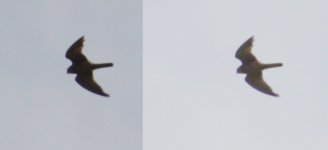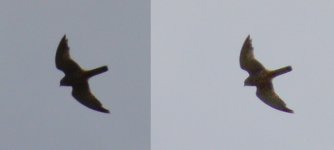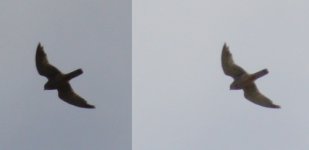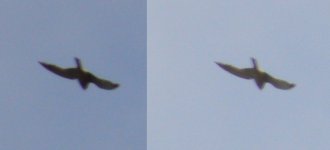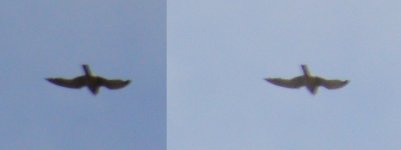RichieTwitchy
YNWA
Hi all
Noticed this guy VERY high up and at first thought it was the size of a Buzzard, but my photos seem to tell a different story (?).
Anyway, it was the behaviour of the bird which caught my eye.
It rose up circling high up on the thermals, as a Buzzard would, but then it would turn into the wind and hover like a Kestrel but for only a short time before going even higher and doing the same - eventually it was the size of a pin ***** in the clouds.
I've never seen a Kestrel go that high, but looking at my photos I can see a Kestrel like shape - or is it?
My uploaded photos have the original photograph (cropped and taken against a very bright sky) with the lightened version next to it.
Any help always appreciated thanks.
Noticed this guy VERY high up and at first thought it was the size of a Buzzard, but my photos seem to tell a different story (?).
Anyway, it was the behaviour of the bird which caught my eye.
It rose up circling high up on the thermals, as a Buzzard would, but then it would turn into the wind and hover like a Kestrel but for only a short time before going even higher and doing the same - eventually it was the size of a pin ***** in the clouds.
I've never seen a Kestrel go that high, but looking at my photos I can see a Kestrel like shape - or is it?
My uploaded photos have the original photograph (cropped and taken against a very bright sky) with the lightened version next to it.
Any help always appreciated thanks.
Attachments
Last edited:




